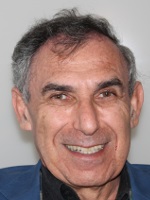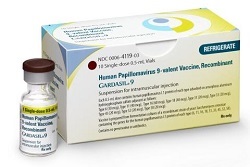Citing "seriously flawed" methodology and "unjustified" claims, the journal Vaccine has permanently withdrawn a previously published study critical of Merck's Gardasil.

Yehuda Shoenfeld
The study, by lead author Yehuda Shoenfeld of Tel-Aviv University and others, found that mice injected with Gardasil exhibited abnormal behaviors and called for a curb on immunization programs utilizing the vaccine, according to Canada's National Post. Last month, Vaccine pulled the article for a second review, which revealed several "gross errors."
In response to the retraction, Shoenfeld, who is known for research questioning vaccine safety, has accused Vaccine editor-in-chief and Mayo Clinic scientist Dr. Gregory Poland of having a conflict of interest. According to the Post, Poland has disclosed that he is chair of the safety-evaluation committee for investigational vaccine trials at Merck and consults for the pharma giant. However, the editor called the allegation "without basis" because the review was conducted by external experts.
In pulling the report last month, Vaccine said the move was "temporary," and that the "article will be reinstated" or replaced, the Post reported. At the time, Tania Watts, University of Toronto's Sanofi Pasteur chair in human immunology, called it "really a poor paper," as quoted by the Post. She added: "I'm surprised this went through (the original peer review). It wouldn't have got past me."
The publication also noted that the scientists are "heavily funded" by antivaccination groups.
 The developments are likely to add to public confusion surrounding HPV vaccines, which since their launch have been unable to gather the traction analysts had earlier predicted. For years, Merck ($MRK) and GlaxoSmithKline ($GSK) have had to combat inaccurate and misleading information on the web, safety concerns, a sex stigma and other factors for a vaccine class that was once anticipated to bring in $4 billion to $10 billion by optimistic analysts.
The developments are likely to add to public confusion surrounding HPV vaccines, which since their launch have been unable to gather the traction analysts had earlier predicted. For years, Merck ($MRK) and GlaxoSmithKline ($GSK) have had to combat inaccurate and misleading information on the web, safety concerns, a sex stigma and other factors for a vaccine class that was once anticipated to bring in $4 billion to $10 billion by optimistic analysts.
Last month, 69 National Cancer Institute-designated centers joined together to urge an increase in HPV vaccinations, calling lagging immunization rates in the U.S. a "public health threat."
In a statement emailed to the Post, Shoenfeld said the authors may consider legal action against Vaccine.
- here's the story
- read the first Post piece
- and the retraction notice